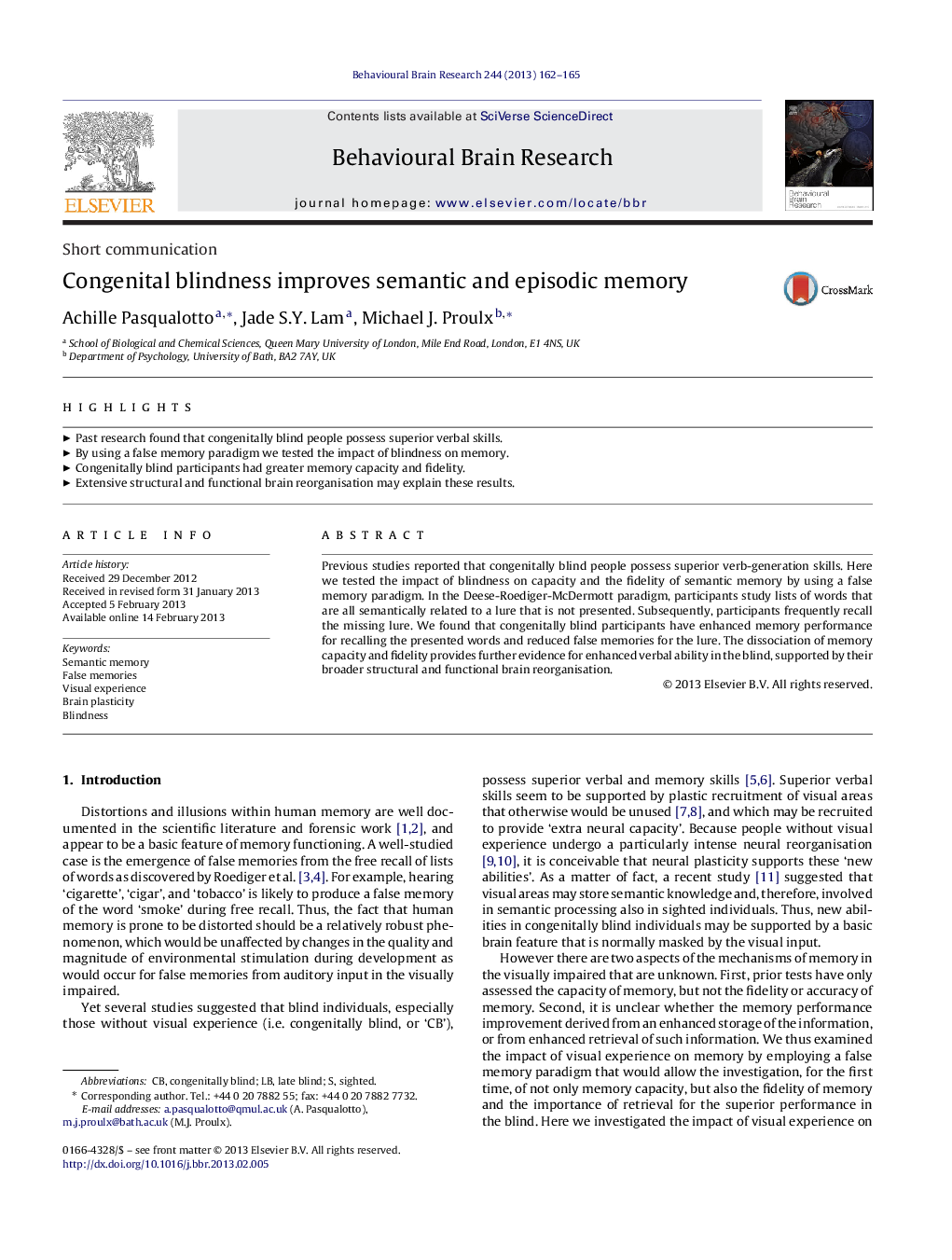| Article ID | Journal | Published Year | Pages | File Type |
|---|---|---|---|---|
| 4312743 | Behavioural Brain Research | 2013 | 4 Pages |
Previous studies reported that congenitally blind people possess superior verb-generation skills. Here we tested the impact of blindness on capacity and the fidelity of semantic memory by using a false memory paradigm. In the Deese-Roediger-McDermott paradigm, participants study lists of words that are all semantically related to a lure that is not presented. Subsequently, participants frequently recall the missing lure. We found that congenitally blind participants have enhanced memory performance for recalling the presented words and reduced false memories for the lure. The dissociation of memory capacity and fidelity provides further evidence for enhanced verbal ability in the blind, supported by their broader structural and functional brain reorganisation.
► Past research found that congenitally blind people possess superior verbal skills. ► By using a false memory paradigm we tested the impact of blindness on memory. ► Congenitally blind participants had greater memory capacity and fidelity. ► Extensive structural and functional brain reorganisation may explain these results.
